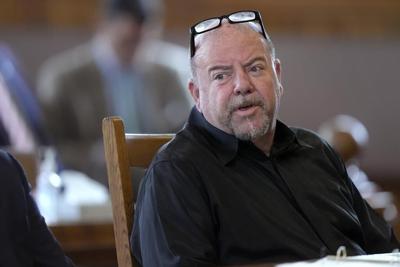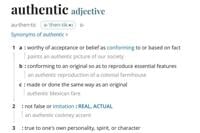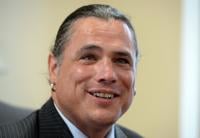CONCORD, N.H. (AP) — The federal Justice Department is defending the legal right to challenge robocalls sent to New Hampshire voters that used artificial intelligence to mimic President Joe Biden’s voice.
Assistant Attorney General Kristen Clarke and U.S. Attorney Jane Young filed a statement of interest Thursday in brought by the League of Women Voters against Steve Kramer — the political consultant behind the calls — and the three companies involved in transmitting them.
Kramer, who is facing separate criminal charges related to the calls, has yet to respond to the lawsuit filed in March, but the companies filed a motion to dismiss last month. Among other arguments, they said robocalls don’t violate the section of the Voting Rights Act that prohibits attempting to or actually intimidating, threatening or coercing voters and that there is no private right of action under the law.
The Justice Department countered that the law clearly allows aggrieved individuals and organizations representing them to enforce their rights under the law. And it said the companies were incorrect in arguing that the law doesn’t apply to robocalls because they are merely “deceptive” and not intimidating, threatening or coercive.
“Robocalls in particular can violate voting rights by incentivizing voters to remain away from the polls, deceive voters into believing false information and provoke fear among the targeted individuals,” Young said in a statement. “The U.S. Attorney’s Office commends any private citizen willing to stand up against these aggressive tactics and exercise their rights to participate in the enforcement process for the Voting Rights Act."
At issue is a message sent to thousands of New Hampshire voters on Jan. 21 that featured a voice similar to Biden’s falsely suggesting that voting in the state’s first-in-the-nation presidential primary two days later would preclude them from casting ballots in November. Kramer, who and self-described “digital nomad” who does technology consulting $150 to create the recording, has said he orchestrated the call to publicize the potential dangers of AI and spur action from lawmakers.
He faces in New Hampshire, along with a proposed $6 million fine from the Federal Communications Commission, which has taken multiple steps in recent months to combat the growing use of AI tools in political communications.
it advanced a proposal that would require political advertisers to disclose their use of artificial intelligence in broadcast television and radio ads, though it is unclear whether new regulations may be in place before the November presidential election.








































